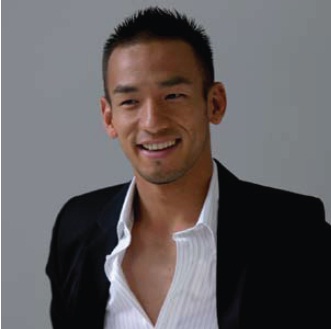Norman Munroe looks into the role of a sports agent
Japanese athletes at the top of their game, especially in sports like baseball and football, can command huge fees for their services and several have made huge sums in transfer deals to clubs in the U.S. and Europe. Stars such as Ichiro Suzuki, Daisuke Matsuzaka, and Shunskei Nakamura, owe their success not just to their talent but also to those who have negotiated their contracts. Among the more recent examples are Matsuzaka’s $50 million-plus 2006 deal with the Boston Red Sox, negotiated by well-known American sports agent Scott Boras, and Ichiro Suzuki’s 2001 signing by the Seattle Mariners for $14 million. No doubt, he’s worth a lot more now.
Football players, generally, tend to earn less than baseball players, even in the top European leagues. Nakamura, who plays for Scottish club, Celtic, was signed for roughly £1.25 million, ($2.5 million) in 2005. Many other Japanese athletes, among them tennis players, golfers, and ice skaters, earn their living performing mostly on overseas circuits. Most are signed to management contracts with foreign sports agents, who handle their business arrangements.
The business aspect of sports in Japan, in comparison to other parts of the world, has taken a while to really get going but as professional sport develops in Japan this aspect, too, is developing.
So, who is a sports agent? As Stuart Larman, a licensed Tokyo-based British sports agent, who deals largely with football players, puts it, the agent is a trained, licensed professional whose job, basically, is to represent his client. “There are two elements, really. In football, as in many sports, the main job is to find [players] the best job within the sport. So, for example, help find a new club and then to negotiate the best contract.” The second element is to find commercial deals if the athlete is commercially valuable.
“The business aspect of sports in Japan, in
comparison to other parts of the world,
has taken a while to really get going.”
Agents are licensed by the national governing body for the sport in which they operate, such as the Japan Football Association, as well as by the sport’s international governing body, where applicable. Would-be agents are required to study the regulations governing the sport, especially as they relate to transfers and other kinds of transactions, and then sit some kind of written exam, after which they are accredited.
Football’s world governing body, FIFA, on its website lists a mere 24 licensed agents working in Japan, based mainly in and around Tokyo, with a couple in Osaka. Japan is not a first tier football nation like, say, England or Italy, which boast listings of 321 and 456 registered agents, respectively.
Among those recognized as among the best agents in Japan are Nobuaki Tanabe of Shibuya-based JEB Entertainment, responsible for players like Junichi Inamoto, French-based midfielder Daisuke Matsui and the Swiss-based Koji Nakata. Other top local agents include Yasushi Imatoki of Fullcast Sports Co. and Yusuke Ono of Athleteplus Ltd.
Sports representation in Japan has really come into its own, certainly in terms of football, since the 1993 formation of the J-League, which filled the same role for football players that the baseball clubs did before them, that is, putting the game on a professional footing. Add to the mix Japan’s maiden voyage to the World Cup finals in France in 1998 where players like Hidetoshi Nakata were able to parade their talents before a global audience, and the subsequent co-hosting, with South Korea, of the 2002 finals, and the stage was set for the local business to expand.
Agents are usually paid a percentage of their client’s earnings, in Japan, generally around five percent, which can amount to very little at the lower end of the scale, if an agent represents young, unknown talent. The business is a competitive one, where agents are hired to find the best deals for their clients. If he can’t deliver, then he is replaced. Says Larman: “Say, an athlete earns ¥10 million, then you will be getting ¥500,000 a year. That’s not much money. And it’s a lot of work. You know, in Japan, people do things properly. You have to really look after that player. Not just casually, you have to look after that player. If you represent a national team player you get 5 percent of a very good salary. And if he goes overseas; with commercial deals; you get more with commercial deals.”
Naturally, all concerned have to work very closely together, in the face of what can often be competing demands for the athlete’s time. There is regular, sometimes daily, contact between agent and athlete and agents usually have to be available to their clients whenever necessary. However, although not in their stated job descriptions, agents sometimes also have to act as big brothers, or fill whichever need is called for in a pinch. They also have to help deal with issues like intense media, and sometimes legal, scrutiny when their charges get in trouble. Former Iwate Jubilo midfielder Naoya Kikuchi’s arrest for rape and subsequent firing from his club and JFA suspension last year is the kind of situation, for example, that agents dread having to deal with.
Sports management firms, like sports agents are, these days, looking beyond the soccer field and the baseball diamond. Public relations and sports management firm Sunnyside Up, for instance, also represents champion swimmer Kosuke Kitajima, track star Dai Tamesue, tennis veteran Ai Sugiyama and golfers Akiko Fukushima and Momoko Ueda. They have even moved into ‘fringe’ sports like beach volleyball and bowling, as well as the staid traditional board game, shogi or Japanese chess. In many cases, the firm participates in the athletes’ contract issues, in addition to the purely commercial ventures.
The future for sports marketing therefore looks bright. As local sports continue to move to a more professional footing, as more athletes leave Japan to ply their trade abroad, and also, in time, as local leagues develop and attract talent which is in its prime to work in Japan, the business side of sports will continue to become more and more sophisticated. The sports agent industry, as well as that of sports marketing, are both set to grow.









